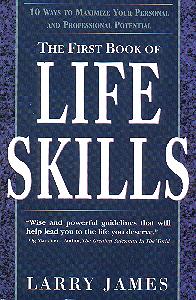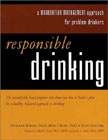How Strattera and stimulants can be utilized in combination to extend duration of ADHD symptom relief without intolerable side effects.
Atomoxetine and Stimulants in Combination for Treatment of Attention Deficit Hyperactivity Disorder: Four Case Reports
Thomas E. Brown - Department of Psychiatry, Yale University School of Medicine, New Haven, Connecticut
Thomas E. Brown. Journal of Child and Adolescent Psychopharmacology. 2004, 14(1): 129-136. doi:10.1089/104454604773840571.
ABSTRACT
Atomoxetine and stimulants have both been demonstrated effective as single agents for treatment of attention deficit hyperactivity disorder in children, adolescents, and adults. However, attention deficit hyperactivity disorder symptoms in some patients do not respond adequately to single-agent treatment with these medications, each of which is presumed to impact dopaininergic and noradrenergic networks by alternative mechanisms in different ratios. Four cases are presented to illustrate how atomoxetine and stimulants can be utilized effectively in combination to extend duration of symptom relief without intolerable side effects or to alleviate a wider range of impairing symptoms than either agent alone. This combined pharmacotherapy appears effective for some patients who do not respond adequately to monotherapy, but because there is virtually no research to establish safety and effectiveness of such strategies, careful monitoring is needed.
INTRODUCTION
Atomoxetine (ATX), a specific noradrenergic reuptake inhibitor approved by the U.S. Food and Drug Administration in November 2002, is the first new medication approved for treatment of attention deficit hyperactivity disorder (ADHD) in many years. In clinical trials including 3,264 children and 471 adults (D. Michelson, personal communication, September 15, 2003). ATX has been demonstrated to be safe and effective as a monotherapy for treatment of ADHD.
This new compound is quite different from stimulants, the long-established mainstay for treatment of ADHD. It has shown minimal risk of abuse and is not a schedule II agent; therefore, it can be prescribed with refills and distributed by physicians in samples. Unlike the stimulants that act primarily on the brain's dopamine (DA) system, ATX exerts its action primarily through the noradrenergic system of the brain.
Evidence suggests that there is an important role for both norepinephrine (NE) and DA systems in the pathophysiology of ADHD (Pliszka 2001). It appears that cognitive management systems of the brain can become dysregulated by either insufficiency of DA and/or NE in synapses or by excessive synaptic release of DA and/or NE (Arnsten 2001). There Department of Psychiatry, Yale University School of Medicine, New Haven, Connecticut. is some consensus that DA and NE are centrally important in ADHD (Biederman and Spencer 1999), but relative importance of these two catecholamines in particular ADHD subtypes or in particular cases with or without specific comorbidities has not been established.
Although the stimulants methylphenidate (MPH) and amphetamine block reuptake of both NE and DA at their respective transporters, the primary mechanism of action of these stimulant medications widely used for ADHD is via the dopaminergic system of the brain (Grace 2001; Pliszka 2001; Solanto et al. 2001). Until ATX the primary noradrenergic medications for treatment of ADHD were the tricyclic antidepressants. These agents have been shown effective for treatment of ADHD, but risks of adverse cardiovascular effects have caused many clinicians to avoid theft use. Analysis of tricyclic antidepressant response profiles suggests that these agents more consistently improve behavioural symptoms of ADHD) than cognitive function as measured in neuropsychological testing (Biederman and Spencer 1999). In contrast, ATX has not shown elevated cardiovascular risks and has been shown effective for both inattentive and hyperactive-impulsive symptoms of ADHD (Michelson et al 2001. 2002, 2003), although relative efficacy of ATX and stimulants on the two symptom sets has not yet been established.
The mechanism of action for ATX is more specific than that of the tricyclic antidepressants. It inhibits reuptake by the presynaptic NE transporter with minimal affinity for other noradrenergic transporters or receptors (Gehlert et al. 1993; Wong et al. 1982). This pattern of affinity might suggest that its therapeutic benefits derive exclusively from action on noradrenergic circuits, but the process may not be that simple. Preclinical work by Bymaster et al. (2002) and Lanau et al. (1997) suggests that noradrenergic agents such as ATX may act indirectly but potently on the DA system in addition to their recognized impact on noradrenergic receptors. It may be that both stimulants and ATX impact both dopaminergic and noradrenergic circuits in the brain, albeit in different ratios or sequences.
Given the complexity of ADHD and of the mechanisms of action in agents used to treat the disorder, it is likely that ADHD symptoms of some patients with respond to one ratio of noradrenergic versus dopaminergic intervention better than to another. For many patients, ATX or stimulants are quite effective as single agents for alleviating ADHD symptoms, yet some who suffer from ADHD impairments continue to experience significant problematic symptoms when treated with either a stimulant or ATX alone.
In cases where response obtained from a single agent is insufficient, the possibility of utilizing ATX and stimulants in combination may be considered. This combined treatment strategy is similar to the combination of MPH with fluoxetine reported by Gammon and Brown (1993), although that study focused exclusively on ADHD with comorbid symptoms. This report is concerned with treatment of core symptoms of ADHD alone as well as with the more commonly found cases of ADHD complicated by various comorbid symptoms (Brown 2000).
The following case reports describe patients carefully diagnosed with ADHD who did not respond adequately to treatment with a stimulant or ATX as a single agent. In some cases, ATX was added to an existing regimen of a stimulant; in others, a stimulant was added to a regimen of ATX. Each brief vignette describes the problematic symptoms, the regimen tried, and the patient's response. Possible indications for such combined treatment are described, and risks and benefits to such treatment strategies are discussed.
ATX ADDED TO STIMULANTS
Some patients with ADHD obtain a robust response from stimulants for most of their ADHD symptoms or for most of the day, but not for the full range of impairing symptoms or the full span of time needed.
Case I
Jimmy, an 8-year-old boy in second grade, had been diagnosed with ADHD-combined type while in kindergarten. He was doing well throughout the school day on OROS® MPH 27 mg q 7 a.m., but this dose wore off by 4p.m., leaving the boy restless, irritable, and severely oppositional for the ensuing 5 hours until his bedtime. During this time Jimmy was unable to focus on homework and often engaged in hostile interactions with playmates and family. He also was very irritable and oppositional every morning for about an hour until his OROS MPH had taken effect. In addition, Jimmy had chronic difficulty falling asleep, a longstanding problem that antedated his being on stimulant medication. Doses of 2.5, 5, and 7.5 mg immediate release MPH (MPH-IR) were tried at 3:30 p.m. to supplement the morning dose of OROS MPH. The 2.5- and 5-mg doses were ineffective; the 7.5-mg dose after school was helpful in alleviating Jimmy's irritability and oppositional behaviour after school and in the evening. This regimen had to be discontinued, however, because it left Jimmy with severely diminished appetite for afternoon and evening, a serious problem for this boy who was underweight. The 3:30 p.m. dose also exacerbated his chronic difficulty in falling asleep. Clonidine 0.1mg 1/2 tab q 3:30 p.m. and 1 tab hs was helpful in alleviating afternoon irritability and the difficulty failing asleep but did not help his impaired focus for homework or the serious problems with morning routine that were very stressful for the entire household.
Clonidine was discontinued, and a trial of ATX 18 mg qam was begun while continuing the OROS MPH. Jimmy's sleep problems improved markedly within a few days. His irritability and oppositionality improved slightly within a few days and significantly over the next 3 weeks after the dose of ATX had been increased to 36 mg at the end of the first week. In addition, after 3 weeks, parents reported that Jimmy was generally much less irritable upon awakening and much more cooperative with morning routines, even during the hour before his OROS MPH took effect. Patient has continued in this OROS MPH and ATX regimen for 4 months with continuing benefit and no adverse effects. Appetite is still somewhat problematic in the evening but much less so than during the treatment with an afternoon dose of MPH-IR.
This case highlights the usefulness of ATX for alleviating difficulties in falling asleep and for improving oppositional behaviour in late afternoon, early evening, and morning, times when the OROS MPH had either worn off or not yet taken effect. It was not clear whether ATX had enhanced positive effects of the MPH during daytime hours, but no negative effects were reported. The benefits of ATX were obtained without the adverse effects that accompanied the trials of MPH-IR administered after school.
Case 2
Jennifer, a 17-year-old high school junior had been diagnosed with ADFID, predominantly inattentive type, in ninth grade. She was treated initially with Adderall-XR® 20 mg administered q 6:30 a.m. as she left for school. Adderall-XR provided coverage only until about 4:30 p.m., which was sufficient for days when homework assignments were relatively light and could be done immediately after school.
At the outset of her junior year, Jennifer and her parents requested medication adjustments that would extend coverage into the evening. Because of part-time employment after school, Jennifer now had to do her homework in the evening. Also she was now driving herself to and from school, to and from her job, and to other activities. After she had a minor motor vehicle accident caused by her being inattentive, Jennifer and her parents decided it would be important for her to have medication coverage in the evening to help her with homework and to improve her attention when driving.
Jennifer's morning dose was maintained at 20 mg of Adderall-XR, and Adderall-IR 10 mg was added at 3:30 p.m. This provided coverage until about 10 p.m, but it caused Jennifer to feel extremely restless and anxious in late afternoon. These adverse effects were not alleviated by reducing the dose of Adderall-IR to 5 mg. Moreover, the lower dose of JR did not provide enough symptom control for Jennifer in the evening for homework, so she had to quit her after school job.
When ATX became available, Jennifer was started on ATX 18 mg qam for 1 week concurrent to the existing regimen of Adderall-XR 20 mg qam. After a couple of days of feeling somnolent on this combination, she reported no other adverse effects and some slight improvement in her ability to get homework done in the evening. ATX was increased to 40 mg qam. She experienced 2 days of somnolence on this increased dose, but this dissipated on the third day.
Over the next 3 weeks, Jennifer reported feeling calmer, more focused, and more alert throughout the day and into the evening until bedtime. For 5 months Jennifer and her parents have continued to report good control of her ADHD symptoms throughout the day and evening, with no adverse effects reported.
Jennifer was able to tolerate and benefit from the Adderall-XR given in the morning, but she did not respond well when a second dose of Adderall was given in the afternoon. The combination of Adderall-XR with Adderall-IR seemed to produce an accumulated level by late afternoon that caused her marked restlessness and anxiety The combination of Adderall-XR with ATX allowed better alleviation of ADHD symptoms throughout the day and into afternoon and evening. On this regimen, Jennifer did not feel anxious or restless and was able to do well during school, complete her homework in the evening, and resume her after school job. She also reported that she felt more focused when driving in the evening, at times when the stimulant would be expected to have lost effectiveness. Expanded duration of medication coverage, especially for evenings and weekends, for drivers with ADHD may provide important protection from elevated safety risks reported for drivers with this disorder (Barkley et al. 2002).
STIMULANTS ADDED TO ATX
Some patients with ADHD gain a positive response from treatment with ATX alone but continue to suffer with additional impairments that are highly problematic.
Case 3
Frank, a 14-year-old ninth grader, had been diagnosed with ADHD-combined type in seventh grade. He was tried on MPH at that time but did not respond well to doses of 10 or 15 mg tid. When the dose was increased to 20 mg tid, he experienced marked improvement in symptoms of both inattention and hyperactivity/impulsivity, but he refused to continue because this higher dose caused severe blunting of affect and anorexia. Subsequently he was tried on mixed salts of amphetamine and on OROS MPH. With all of these stimulants, the dose required to produce significant alleviation of ADHD symptoms caused the same intolerable side effects.
Frank was then tried on nortriptyline (NT) up to 80 mg hs. On this regimen his hyperactive and impulsive symptoms were markedly alleviated, but his inattention symptoms continued to be problematic. and he disliked the regimen because it caused him to feel that he had lost his "sparkle," a less severe blunting of affect than on stimulants, but still uncomfortable enough to make him reluctant to take the medication. Over 2 years, he had several episodes of interrupting his treatment with NT to avoid side effects, being frustrated by declining grades and behaviour problems, and then unhappily resuming treatment on the NT regimen.
Frank requested a trial of ATX immediately after it became available. His NT was discontinued, and he was started on 25 mg qam for 1 week, after which the dose was increased to 50 mg and then, 1 week later, to 80 mg qam. After minor gastrointestinal complaints and some somnolence in the first week, no adverse effects were reported. Frank initially reported no benefit, but after 3 weeks he noticed that he felt more calm throughout the day. His parents and teachers reported improved behaviour throughout the day, but they and Frank noted that he continued to show much difficulty in sustaining concentration for academic tasks.
In week 6, Frank's regimen of ATX 80 mg qam was divided into 40 mg bid and then augmented with OROS MPH 18 mg qam. He reported that this slightly improved his ability to remember what he had read and to focus on his schoolwork. At his request, the dose was increased to OROS MPH 27 mg qam with the ATX 40 mg bid. Frank has continued on this regimen for 4 months with no adverse effects.
He reports that on this regimen he feels "like my regular self," and his grades have improved in all subjects. Frank's intermittent disruption of his treatment with NT illustrates an important problem that commonly occurs, especially with adolescent patients. Uncomfortable side effects such as blunting of affect can significantly interfere with treatment compliance, even when the regimen significantly improves target symptoms. The combination of ATX and OROS MPH alleviated this problem that had threatened to totally disrupt Frank's treatment. This combined regimen developed in collaboration with Frank also resulted in better control of the wider range symptoms targeted for treatment.
Case 4
Six-year-old George was diagnosed with ADHD-combined type and oppositional defiant disorder after 3 months in full-day kindergarten. His teacher complained that George refused to follow directions and was unable to sustain attention to tasks. George's parents reported that over several years he had been increasingly oppositional at home, so much that they were unable to get any babysitter to return for a second time. He often fought with neighbourhood children and was argumentative and disrespectful to his parents and other adults. Parents also reported that since early childhood George had experienced chronic difficulty in falling asleep. Despite their efforts to calm him, he was unable to settle into sleep until 10 to 11:30 p.m.
George was started on ATX 18 mg qam. Initially he complained of stomach-ache, but this dissipated within a few days. Dose was increased to 36 mg qam after 1 week. After 2 weeks, parents reported that George had begun to settle down more easily in the evening and was falling asleep without much difficulty by 8:30 p.m. They also noted improvement in his compliance with morning routines and getting off to school. After 3 weeks, the teacher reported that George was more cooperative in following directions and had a better attitude with other children but noted that he still had much difficulty in sustaining attention to stories, play, or reading exercises.
In that the recommended ATX dosing limit for George's weight had been reached, a trial of Adderall-XR 5 mg qam was added to the ATX regimen. This improved George's behaviour further and increased his ability to sustain attention in school, but it also caused increased difficulty in falling asleep. The ATX dose was then split so that George received 18 mg ATX with the morning dose of stimulant and 18 mg ATX at dinnertime. This recaptured the improvement in sleep. George has continued on this regimen for 3 months, with marked improvement at home and school and no adverse effects. ATX was chosen as an initial intervention for George because it offered the possibility of addressing his severe problems in sleep as well as his very problematic oppositional behaviour and inattention using a single agent with relatively smooth coverage throughout the day.
ATX was quite helpful for George, but the teacher's reports of continuing inattention symptoms that were interfering with leaning highlighted the need for further intervention. A higher dose of ATX was not tried because a dose response study of ATX (Michelson et a!. 2001) did not show added benefit to doses above 1.2 mg/kg/day. At this point, the combination of ATX and stimulant every morning was tried. Splitting the dose of ATX provided a way to retain benefits of the stimulant while sustaining improved sleep.
RISKS OF COMBINING STIMULANTS WITH ATX
Stimulants and ATX have been subjected to extensive clinical testing that has demonstrated safety and efficacy in their use as single agents for treatment of ADHD. An enormous quantity of research and clinical experience has been accumulated with stimulants over the past 30 years. Most of this has been with elementary school children, but there is a sizable body of research on stimulants with adolescents and with adults as well. Greenhill et al. (1999) summarized studies including 5,899 individuals that have shown stimulants to be safe and effective for treatment of ADHD. ATX has not yet been tested for long in the wider population of patients treated outside the protective restrictions of clinical trials, but it has been demonstrated safe and effective in clinical trials involving over 3,700 individuals, a much larger sample than for other nonstimulant medications tried for ADHD. However, the substantial evidence of safety and effectiveness of ATX and stimulants as single agents does not establish satisfactory evidence of safety and benefits of using these agents together.
The combination of stimulants with ATX described in these cases has thus far been quite helpful in alleviating patients' ADHD symptoms without any recognized adverse effects. At present, however, there are virtually no research data to demonstrate the safety and effectiveness of such combined treatments. The manufacturer of ATX has reported that tests of combined administration of MPH and ATX did not result in increased blood pressure, but not much more has been published about the use of these two medications together.
When more than two medications are used together, the potential for adverse effects is further increased. We had one 18-year-old high school student in whom a combination of three medications produced significant although transient adverse effects. This student's severe ADHD symptoms and moderate dysthymia had responded only partially to 1 year of treatment with OROS MPH 72 mg qam with fluoxetine 20 mg qam. When his continuing difficulties with inattention symptoms jeopardized his graduating from high school; ATX 80 mg was added to the existing regimen. After this regimen had been working well for 6 weeks, a taper down was begun to discontinue the fluoxetine. Before the taper down was completed, the boy reported an acute episode of headache and dizziness in school The school nurse found his blood pressure to be 149/100 mm Hg; previous baseline was consistently 110 / 70 mm Hg. All medications were discontinued until his pressure was restabilized for 2 weeks, at which time ATX was restarted followed by the OROS MPH a week later. The hypertensive episode apparently resulted from effects of the fluoxetine on metabolism of the ATX. This is evidence to support the warning from manufacturers of ATX that caution must be used when strong CYP2D6 inhibitors such as fluoxetine are used concurrent to ATX. The combination of ATX and OROS MPH was helpful and well tolerated by this patient after the fluoxetine had been fully washed out, a step that should have been taken prior to adding the ATX.
Lack of systematic research on use of ADHL) medications in combination is an example of a broader problem in psychopharmacology, particularly in child and adolescent psychopharmacological treatment. The practice of using medications in combination is increasingly widespread. Safer et al. (2003) recently reviewed clinical research and practice literature from 1996-2002 to assess frequency of concomitant psychotropics for youths- They reported that during 1997-1998 almost 25% of the representative physician office visits for youths in which a stimulant prescription was written were also associated with use of concomitant psychotropic medication. This was a fivefold increase over the rate in 1993-1994. Elevated rates for use of alternative combinations of medications to treat other psychiatric disorders in children were also found, usually to treat aggressive behaviour, insomnia, tics, depression, or bipolar disorder. Apparently, combined pharmacotherapy with children is increasing despite the lack of adequate research on the safety of such combinations.
Some might question why clinicians utilize a combined pharmacotherapy treatment before it has been fully evaluated in controlled trials. Usually the rationale is that apparent risks for a particular patient appear significantly less harmful than the likely risks of not providing such treatment and that there is potential of substantial benefit for a patient suffering significant impairment. The major problem with this approach is the dearth of adequate research to guide estimates of possible risks and benefits in the use of combined medication treatment. Similar uncertainties exist in many fields of medicine.
The cases described in this report reflect various problems that were not life threatening but were significantly impairing the learning, school achievement, family life, and/or social relationships of these patients in ways that had substantial negative impact on functioning and quality of life for the children and their families. Each derived some benefit from treatment with a single agent, but significant ADHD symptoms or related impairments persisted on the monotherapy regimen- In these cases, neither parents nor clinicians were engaged in a quixotic search for perfection; these children and families were suffering significantly from impairing symptoms inadequately alleviated by single-agent treatment.
In such cases, clinicians need to weigh carefully potential advantages and risks of accepting limited benefits obtained 1mm monotherapy versus the potential risks and benefits of utilizing combined agents. As Greenhill (2002) observed, "The individual practitioner must make key decisions when treating an individual patient, often without an authoritative answer or direction from the research literature." Greenhill added that even when relevant research literature is available, it yields "averaged group data to evaluate medication effects, possibly missing important subgroup differences in treatment response" (chapter 9, pp. 19-20). The clinician's task is to tailor treatment interventions utilizing understanding of the relevant science together with sensitive understanding of the particular patient.
In the four cases presented here; the combination of ATX with stimulants has apparently been safe and effective. We have obtained similar results thus far in 21 other cases with no significant adverse effects. Such anecdotal reports, however, especially over short time frames, are not sufficient to establish safety In~ the absence of adequate research, decisions to utilize this combination of ATX and stimulants should be made on a case-by-case basis, with full disclosure of the limited research base given to the patient or parents and with ongoing monitoring for effectiveness and possible adverse effects.
NOTE: This study has been printed here with the very kind permission of Thomas E. Brown, Ph.D.
next:
REFERENCES
Arnsten AFT: Dopaminergic and noradrenergic influences on cognitive functions. In: Stimulant Drugs and ADHD: Basic and Clinical Neuroscience Edited by Solanto MV, Arnsten AFT, Castellanos FX New York, Oxford University Press, 2001, pp 185-208.
Barkley RA, Murphy KR, DuPaul GI, Bush T: Driving in young adults with attention deficit hyperactivity disorder: Knowledge, performances adverse outcomes, and the roleof executive functioning . J. Neuropsychol Soc 8: 655-672. 2002.
Biederman J, Spencer T: Attention- deficit/hyperactivity disorder (ADHD) as a noradrenergic disorder. Biol Psychiatry 46:1234-1242, 1999.
Brown TE: Emerging understandings of attention deficit disorders and comorbidities. In: Attention Deficit Disorders and Comorbidities in Children, Adolescents and Adults. Edited by Brown TE. Washington (DC), American Psychiatric Press, 2000, pp 3-55.
Bymaster FP, Katner JS, Nelson DL, HemrickLuecke 5K, Threlkeld PC, Heiligenstein JH, Morin SM, Gehlert DR, Perry KW: Atomoxetine increases extracellular levels of norepinephrine and doparnine in prefrontal cortex of rat: A potential mechanism for efficacy in attention deficit/hyperactivity disorder Neuropsychopharmacology 27:699-711, 2002.
Gammon GD, Brown TE: Fluoxetine and methylphenidate in combination for treatment of attention deficit disorder and comorbid depressive disorder. J Child Adolesc Psychopharrnacol 3:1-10, 1993.
Gehlert DR. Gackenheimer SL, Robinson DW: Localization of rat brain binding sites for [3H]tomoxetine, an enantiomerically pure ligand for norepinephrine reuptake sites. Neurosci Lett157:203-206, 1993
Grace AA: Psychostimulant actions on dopamine and limnbic system function: Relevance to the pathophysiology and treatment of ADHD. In: Stimulant Drugs and ADHD: Basic and Clinical Neuroscience. Edited by Solanto MV, Arnsten AFT, Castellanos FX. New York, Oxford University Press, 2001, pp 134-157.
Greenhill L: Stimulant medication treatment of children with attention deficit hyperactivity disorder. In: Attention Deficit Hyperactivity Disorder: State of the Science, Best Pracfices Edited by Jensen PS, Cooper JR. Kingston (New Jersey), Civic Research Institute, 2002, pp 1-27.
Greenhill L, Halperin JM, Abikoff H: Stimulant medications. J Am Acad Child Adolesc Psychiatry 38:503-512, 1999.
Lanau F, Zenner M, Civelli O, Hartmann D: Epinephrine and norepinephrine act as potent agonists at the recombinant human dopamine D4 receptor J Neurochem 68:804-812, 1997.
Michelson D, Adler L, Spencer T, Reimherr FW, West SA, Allen AJ, Kelsey D, Wernicke I, DietrichA, Milton D: Atomoxetine in adults with ADHD: Two randomized, placebo-controlled studies. Biol Psychiatry 53:112-120, 2003.
Michelson D. Allen AJ, Busner J. Casat C, Dunn D, Kratochvil C, Newcom J, Sallee FR, Sangal RB, Saylor K, West SA, Kelsey D, Wernicke J, Trapp NJ, Harder D: Once-daily atomoxetine for children and adolescents with attention deficit hyperactivity disorder: A randomized, placebo-controlled study. AmJ Psychiatry 159:1896-1901,2002
Michelson D, Faries D, Wernicke J, Kelsey D, Kendrick K, Sallee FR, Spencer T; Atomoxetine ADHD Study Group: Atomoxetine in the treatment of children and adolescents with attention-deficit/hyperactivity disorder: A randomized, placebo-controlled, dose-response study. Pediatrics 108:E83, 2001
Pliszka SR: Comparing the effects of stimulant and non-stimulant agents on catecholamn~e function: Implications for theories of ADHD. In: Stimulant Drugs and ADHD: Basic and Clinical Neuxoscjence Edited by Solanto MV, Arnsten AFT, Castellanos FX. New York, Oxford University Press, 2001, pp 332-352.
Safer DJ, Zito JM, Doskeis 5: Concomitant psychotropic medication for youths. Am J Psychiatry 160:438-449,2003.
Solanto MV, Arnsten AFT, Castellanos FX: Neuroscience of stimulant drug action in ADHD. In; Stimulant Drugs and ADHD: Basic and Clinical Neuroscience. Edited by Solanto MV ArnstenAFT, Castellanos FX. New York, Oxford University Press, 2001, pp 355-379.
Wong DT, Threlkeld It, Best KL, Bymaster FP: A new inhibitor of norepinephrine uptake devoid of affinity for receptors in rat brain. J Pharmacol Exp Ther 222:61-65, 1982.


 Most successful business women that I know are
Most successful business women that I know are  I asked her what her goals were for her advancement at the bank. She told me. I then explained that if she ever expected to achieve her goals, one of the most important elements of her success would be networking. To overcome her fear, I suggested that she take the Dale Carnegie Course. She did and later became one of their top "graduate assistants."
I asked her what her goals were for her advancement at the bank. She told me. I then explained that if she ever expected to achieve her goals, one of the most important elements of her success would be networking. To overcome her fear, I suggested that she take the Dale Carnegie Course. She did and later became one of their top "graduate assistants."


 Here is a look at how the body of a man reacts:
Here is a look at how the body of a man reacts: Alcohol abuse is involved in at least one traffic fatality every half-hour in the United States.
Alcohol abuse is involved in at least one traffic fatality every half-hour in the United States.
 In discussions about the theories, common problems, and treatment of repeat dieters or those dealing with issues of weight preoccupation, obesity and dieting are often interrelated. There are physical, psychological and social aspects to the problems of obesity. This is why the social work profession is ideally suited to understanding the problems and provide effective intervention.
In discussions about the theories, common problems, and treatment of repeat dieters or those dealing with issues of weight preoccupation, obesity and dieting are often interrelated. There are physical, psychological and social aspects to the problems of obesity. This is why the social work profession is ideally suited to understanding the problems and provide effective intervention. Her severe depressions are the worst. I can see how bad she feels yet I am helpless to pull her out of it. When she gets seriously depressed, she doesn't cook, clean, groom, answer the phone, pay bills, go outside, or do any of her usual things. She's in bed most of the time. I'm afraid to leave her alone and am on edge constantly. I fear she will suicide as she has attempted before. I take her medications with me when I have to leave the house, and I hide or lock them up when I'm home. I study my home carefully looking at things she might try to kill herself with. I take all the knives and anything else I can think of out of our house. When she reaches this point, it's time for the hospital and I have to get her admitted. It's a very painful thing to see. The stress can sometimes be unbearable.
Her severe depressions are the worst. I can see how bad she feels yet I am helpless to pull her out of it. When she gets seriously depressed, she doesn't cook, clean, groom, answer the phone, pay bills, go outside, or do any of her usual things. She's in bed most of the time. I'm afraid to leave her alone and am on edge constantly. I fear she will suicide as she has attempted before. I take her medications with me when I have to leave the house, and I hide or lock them up when I'm home. I study my home carefully looking at things she might try to kill herself with. I take all the knives and anything else I can think of out of our house. When she reaches this point, it's time for the hospital and I have to get her admitted. It's a very painful thing to see. The stress can sometimes be unbearable. The following are my top tips for dealing with my ADD son Richard. Please remember that they have not worked every time and of course each child is different, but if they give you some food for thought, then all the better.
The following are my top tips for dealing with my ADD son Richard. Please remember that they have not worked every time and of course each child is different, but if they give you some food for thought, then all the better. Author Audrey B. Chapman, a couples therapist and radio show host in the Washington, D. C., area, says she finds that for many Black people, the sheer stress of everyday life leaves little time and energy for quality sex. "These days, people are living racy and hectic lives," she says. "Everyone is stressed out trying to achieve so much with so little time and, for most Black people, with not enough resources. People are stressed, pressed and frustrated, and all that takes energy. By the time you get to the end of the day or the week, you are wiped out. It takes energy to be sexual, and that means physical and emotional energy."
Author Audrey B. Chapman, a couples therapist and radio show host in the Washington, D. C., area, says she finds that for many Black people, the sheer stress of everyday life leaves little time and energy for quality sex. "These days, people are living racy and hectic lives," she says. "Everyone is stressed out trying to achieve so much with so little time and, for most Black people, with not enough resources. People are stressed, pressed and frustrated, and all that takes energy. By the time you get to the end of the day or the week, you are wiped out. It takes energy to be sexual, and that means physical and emotional energy."